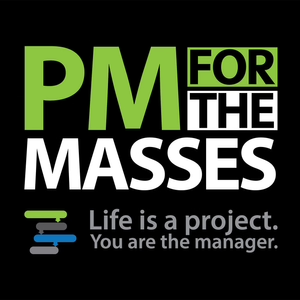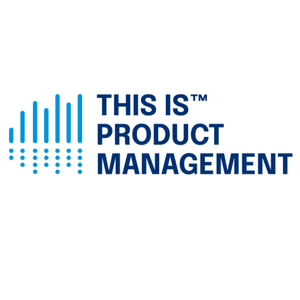
Helping Organizations to Change Faster
10/26/21 • 29 min
How good is your company at change management? How can we combine technology and change to improve performance? How can organizations create more effective environments of learning? How do we find the hidden talent within our organization? This Center Stage podcast is with professor and entrepreneur Dr. Nabeel Ahmad about the disruptive effects of change, automation and data on talent development. Dr. Ahmad is Chief Strategy Officer of Changeforce.AI, a software platform for helping organizations to change faster. This discussion is focused on keeping up with the rapid pace of change though technology that helps people focus on critical strategy outcomes and finding the hidden talent within an organization.
How good is your company at change management? How can we combine technology and change to improve performance? How can organizations create more effective environments of learning? How do we find the hidden talent within our organization? This Center Stage podcast is with professor and entrepreneur Dr. Nabeel Ahmad about the disruptive effects of change, automation and data on talent development. Dr. Ahmad is Chief Strategy Officer of Changeforce.AI, a software platform for helping organizations to change faster. This discussion is focused on keeping up with the rapid pace of change though technology that helps people focus on critical strategy outcomes and finding the hidden talent within an organization.
Previous Episode

Reinventing Organizations Through Networks
Katrina Pugh, a faculty member and former Academic Director of Columbia University’s Information and Knowledge Strategy (IKNS) Master of Science program, helps our Center Stage audience explore the value of networks. Kate has over 20 years of consulting and industry experience in the financial services, life sciences, energy, information technology, and international development sectors. She was co-investigator with Monash University on a PMI-funded research study, Building project managers capability: Knowledge transfer in projects using knowledge networks.
Kate emphasizes how networks build interdependence and spaces where people come together for conversation, collaboration and co-creation. She highlights the significant variety in networks, spreading a spectrum of possible outcomes, from marketable products, to providing just-in-time problem-solving, to providing solidarity and scale. She also helps us distinguish between enduring networks and time-bounded project teams.
Given work and other pressures, one might ask, “What’s the value of investing in networks?” Kate walks us through the knowledge-sharing and knowledge-creation benefits from networks, resulting from the network’s capitalizing on its diversity of thought, reach, scale, and sense of belonging. A leading value of networks is the efficiency that comes from stacking experiences and solutions, rather than reinventing the wheel. This pooled knowledge can help organizations and professionals accelerate projects and reduce time-to-market. Research has shown that networked projects far outperform non-networked projects.
Networks generate benefits for professionals but also for their employers. Staff engaged in networks become better risk-takers, advocates and innovators for the business and for customers. Encouraging network engagement demonstrates management’s support for employee growth and professional development. And, it goes without saying that organizations benefit by learning faster about key developments and capabilities outside of their walls.
Networks need a vision, governance, expertise and energy to be successful. Focus helps network participants concentrate their attention. Governance and structure need to be tailored to enable the right forms of engagement. For example, networks focused on members’ problem-solving need different structures from those which are co-creating products like open source software. And all networks need a variety of people with expertise, willingness to share and ability to reach out to others to help the network grow and thrive. Over time, networks may need to refresh to stay relevant and broaden their diversity of thought, experiences and perspectives. When aligned to the organization’s strategy, networks can prove to be a cost-effective pathway to market innovation, job satisfaction, and project efficiency.
To explore more about networks, check out Kate’s books on the topic:
· Smarter Innovation: How Interactive Processes Drive Better Business Results (Ark Group, 2014); and
· Sharing Hidden Know-How: How Managers Solve Thorny Problems with the Knowledge Jam (Jossey-Bass/Wiley, April 2011).
Kate has also delivered webinars on collaborative work and knowledge networks for Projectmanagement.com:
· Sustainably Smarter: How Knowledge Networks Build PM Skills.
· In the Digital Fray, Don’t Just Converse. Collaborate Inclusively.&
Next Episode

Real Consequences of Valuing Cultural Diversity
Marcia Anderson, MD, is Cree-Anishinaabe whose roots go back to the Norway House Cree Nation and Peguis First Nation in Manitoba. She graduated with her M.D. from the University of Manitoba in 2002 and has since served in a variety of leadership roles, including as head of the Section of First Nations, Métis and Inuit Health; medical officer of health for the Winnipeg Regional Health Authority; a past president of the Indigenous Physicians Association of Canada and executive director, Indigenous academic affairs, Ongomiizwin-Indigenous Institute of Health and Healing.
As a medical resident, Dr. Anderson found the opportunity to connect with her cultural identity through experiences with healthcare for indigenous peoples. This journey also showed her firsthand the racism that is systemic in healthcare and how it can have marginalizing and even life-threatening effects on minority peoples.
Dr. Anderson shares with the Center Stage audience her efforts to combat discrimination against and promote diversity, equity, and inclusion for indigenous peoples, their knowledge, and their traditions. She also challenges us to think about our biases and make ourselves uncomfortable in the pursuit of inclusiveness in our organizations and communities.
Dr. Anderson is an advocate, researcher, and leader in the areas of Indigenous health, primary health care, and medical education. In 2016, she presented a TED Talk on Indigenous Knowledge to Close Gaps in Indigenous Health. In 2018, she was named as one of Canada’s 100 Most Powerful Women by Women’s Executive Network.
If you like this episode you’ll love
Episode Comments
Generate a badge
Get a badge for your website that links back to this episode
<a href="https://goodpods.com/podcasts/center-stage-the-voice-of-the-project-economy-242043/helping-organizations-to-change-faster-26926337"> <img src="https://storage.googleapis.com/goodpods-images-bucket/badges/generic-badge-1.svg" alt="listen to helping organizations to change faster on goodpods" style="width: 225px" /> </a>
Copy




